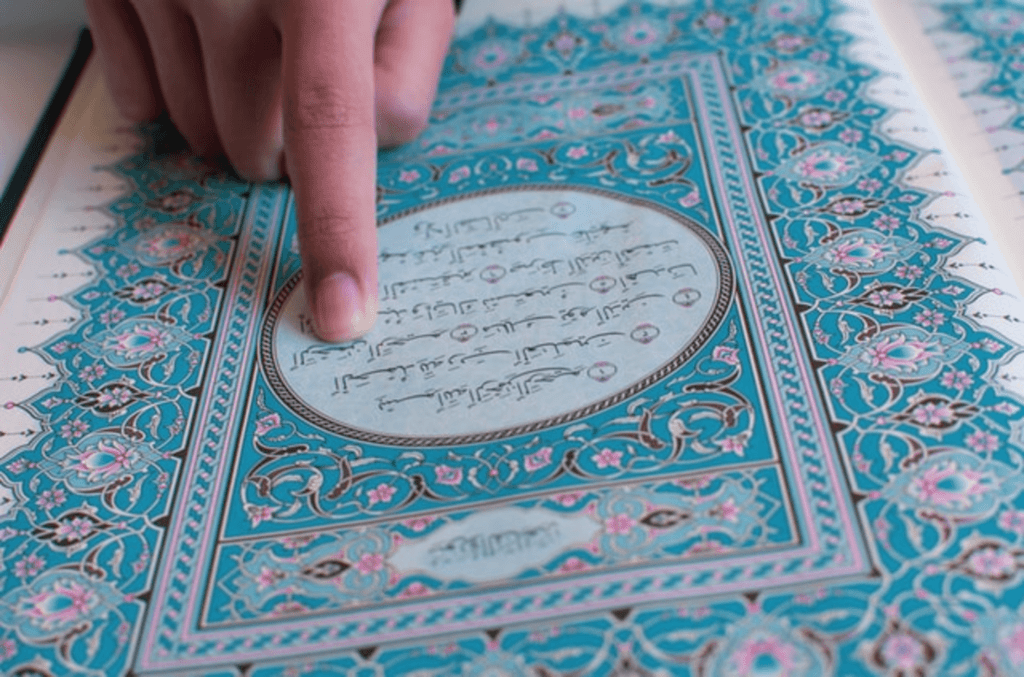Allah (subḥānahū wa taʿālā) says in the Noble Qur’ān:
أَمَّنْ هُوَ قٰنِتٌ آ نَآءَ الَّيْلِ سَاجِدًا وَّقَآئِمًا يَّحْذَرُ الْاخِرَةَ وَيَرْجُوْا۟ رَحْمَةَ رَبِّه قُلْ هَلْ يَسْتَوِى الَّذِيْنَ يَعْلَمُوْنَ وَالَّذِيْنَ لَا يَعْلَمُوْنَ إِنَّمَا يَتَذَكَّرُ أُولُوا۟ الْأَلْبٰبِ
“Is one who worships devoutly during the hours of the night, prostrating and standing, fearing the Hereafter and hoping for the mercy of his Lord, [like one who does not]? Say ‘Are those who know equal to those who do not know?’ Only those who are endowed with insight will take heed” (39:9).
Once, ʿAlī b. Abī Ṭālib (raḍiy Allāhu ʿanhu) went out on the first night of Ramaḍān. The lamps were shining and the Book of Allah was being recited in the masājid, so he stated, “May Allah illuminate your grave O ʿUmar b. al-Khaṭṭāb, just as you illuminated the masājid of Allah with the Qur’ān.”
Qiyām, tahajjud and tarawīḥ are terms used to describe the night prayer in Ramaḍān. In Ramaḍān, the night prayer is done communally and in private. Along with performing tarawīḥ in the masjid, we should perform qiyām at home, especially in the last third of the night, in solitude.
Qiyām at night is one of the greatest acts of worship a slave can perform. It is one of the most precious provisions a believer can take in his journey to Allah. It brings with it a sweetness which is nearly impossible to experience otherwise. One of life’s greatest joys is being able to cry out to one’s Maker in the stillness of the night, in qiyam, in sajdah, when one is closest to Him.
By developing a habit of the night prayer in Ramaḍān, we should try to make it part of our everyday lives throughout the year.
The wife of Abū Muḥammad Ḥabīb (raḥimahullāh) used to say to him at night, “The night has gone. Ahead of us lies a long journey, and the provisions are little. The caravans of the righteous have sped ahead of us, whilst we have remained behind.”
The Reward of Qiyam
Qiyām leads to one attaining the status of the martyrs and the ṣiddīqīn. A man once came to the Prophet ﷺ, and said, “O Messenger of Allah, do you think if I testify that there is no god worthy of worship except Allah, and that you are the Messenger of Allah; and I pray the five prayers, I give zakāh, and I fast and perform qiyām in Ramaḍān, then who am I from?” The Messenger of Allah ﷺ said, “From the ṣiddīqīn and martyrs” (Ibn Ḥibbān).
Qiyām is the means to get all of our previous sins forgiven. The Messenger of Allah ﷺ said, “Whoever stands in prayer at night (qiyām) in the month of Ramaḍān with firm belief and hoping for reward, all his previous sins will be forgiven” (Bukhārī). The key therefore is to perform qiyām with īmān and sincerity.
We often struggle to stand throughout the entire night, and feel sad at not being able to stand for long hours like our pious predecessors used to. There is, however, something we can do to mitigate this: remain in the masjid until the imām finishes. The Messenger of Allah ﷺ said, “Whoever performs qiyām (night prayer) with the imām until he finishes, Allah will record the qiyām of the (entire) night for him” (Nasā’ī).
Qiyām will intercede for us on the Day of Judgement. The Messenger of Allah ﷺ said, “Fasting and the Qur’ān will intercede for the servant on the Day of Judgement. Fasting will say: ‘My Lord, I prevented him from eating and his desires during the day, so accept my intercession on his behalf.’ The Qur’ān will say: ‘I prevented him from sleeping at night, so accept my intercession on his behalf.’ Then, both of their intercession will be accepted” (Aḥmad).
Allah Has A Surprise For You!
From His immense kindness, Allah al-Barr (The Kind), has concealed a magnificent everlasting reward for His slaves who hid away from His creation, pushed their cosy duvets away, and turned to Him in the depths of the night. He (subḥānahū wa taʿālā) says,
“Their sides shun their beds, praying to their Lord in fear and hope; and they spend (in charity) some of what We have given them. Not a single soul is aware of the blissful delight that has been reserved for them in secret, as a reward of what they used to do.” (32:17)
Al-Ḥasan al-Basrī (raḥimahullāh) said, “The people concealed their deeds, so Allah reserved for them in secret what no eye has seen and what has not crossed the mind of any human being.”
“I recite the Qur’ān, and I reflect on a verse, and it leaves me mind-boggled. I am astonished at those who have memorised the Qur’ān, how do they enjoy sleep? And how can they occupy themselves with a worldly thing whilst they are reciting the words of Allah? If they had understood what they were reciting, recognised its worth, derived pleasure through it and experienced the sweetness of intimately conversing with Him – then they would not wish to sleep out of happiness from what they have been given.” – Aḥmad b. al-Ḥawārī (raḥimahullāh)
Qur’ān at Night
Our beloved Prophet ﷺ used to review the Qur’ān with Jibrīl (ʿalayhis-salām) every Ramaḍān. In the Ramaḍān before he passed away, he reviewed it with him twice. Another ḥadīth mentions that this took place at night. This indicates that it is highly recommended to recite Qur’ān at night in Ramaḍān.
The night time is more conducive to reflecting upon and reciting the words of Allah. Allah (subḥānahū wa taʿālā) says, “Indeed, worship in the night is more impactful and suitable for recitation” (73:6). Night prayer leaves a deep impression on the soul. In the stillness of the night, the heart is able to steer itself away from the worries and distractions of the day; the tongue and heart can easily concur to absorb the weighty message of the Lord of the worlds. It also protects a slave from riyā’ (showing off) and is an achievable ‘secret’ deed’ between him and Allah.
Imām al-Nawawī (raḥimahullāh) states that one should devote more time to reciting at night, as Allah says, “…There are some among the People of the Book who are upright, who recite Allah’s revelations throughout the night, prostrating” (3:113).
Tahajjud was a norm in the earlier generations outside of Ramaḍān. Abū al-Aḥwaṣ al-Habashī (raḥimahullāh) said, “Indeed a person would go out in the districts at night, and would hear a buzzing like the buzzing of bees from the residents (i.e. everyone was reciting Qur’ān). What is wrong with these people; they feel secure from what the (earlier ones) used to fear?”
Wuhayb b. al-Ward (raḥimahullāh) said, “It was said to a man: do you not sleep? He replied: Indeed, the marvels of the Qur’ān have made my sleep fly away.” It has been said that a man accompanied another for two months, and did not see him sleeping. So he asked him, “Why is it that I do not see you sleeping?” He replied, “Indeed the marvels of the Qur’ān have made my sleep fly away. I do not leave one marvel, except that I fall into another!”
“By Allah, if it wasn’t for the night prayer (qiyām al-layl), I would not have loved the world. By Allah, the people of the night (prayer) experience more delight in their night than the people of entertainment experience in their entertainment. Sometimes the hearts experience moments in which they leap out of joy due to the remembrance of Allah, to the extent that I say: ‘If the people of Paradise have anything like this, then how blissful must their lives be!’” – Abū Sulaymān al-Dārānī (raḥimahullāh)
Choose the Best Masjid for Qiyam
The Messenger of Allah ﷺ said, “Of those who recite the Qur’ān with the best voice is the one who, when you hear him recite, you think that he fears Allah.” (Ibn Mājah)
The purpose of melodious recitation is not just to sound good, but rather to recite beautifully with proper focus and khushūʿ (humility), so that your heart is moved. It should help us fear Allah and find peace in the recitation.
We should go for ʿIshā ṣalāh early, and choose a masjid where the Imām recites with khushūʿ; someone who, when we hear his recitation, we think that he fears Allah. We should choose a masjid where we can sense the sakīnah (tranquillity); somewhere where we are hopeful that mercy is descending, so we too can enjoy a share of this mercy.
Once, ʿAlī b. Abī Ṭālib (raḍiy Allāhu ʿanhu) saw a man carrying his mother in ṭawāf, so he performed ṭawāf behind him. He said: “By Allah, I am doing ṭawāf, even though I had no intention of doing so. This is because when I saw this man carrying his mother, I realised that mercy will descend upon him, and I want some of that to reach me too.”
Don’t Miss Out On The Best Time
The most virtuous part of the night is the last third of the night. The Messenger of Allah ﷺ said, “Our Lord – Glorified and Exalted is He – descends every night to the lowest heaven when one-third of the night remains and says: ‘Who will call upon Me, that I may answer Him? Who will ask of Me, that I may give him? Who will seek My forgiveness, that I may forgive him?’” (Bukhārī)
About this time, Allah (ʿazza wa jall) says: “And those who seek forgiveness before dawn,” (3:17) and elsewhere: “And in the hours before dawn they would seek forgiveness.” (51:18)
Ibn Rajab (raḥimahullāh) writes, “The middle of the night is reserved for the lovers who wish to spend time in seclusion with their Beloved (Allah), and the end of the night is reserved for the sinners to seek forgiveness for their sins. Whoever is unable to join the striving of the lovers in the depth of the night should at least join the sinners pleading forgiveness at the end of the night.”
“I cannot imagine that someone would sleep during the last part of the night!” – Ṭāwūs (raḥimahullāh)
We should try to not miss out on this special time, even if it means praying two rakʿah. Ibrāhīm al Nakhaʿī (raḥimahullāh) used to say, “Pray at night, even if it is for the duration of milking a goat.”
May Allah al-Karīm (The Most Noble) honour us and make us from the people of the night prayer.






